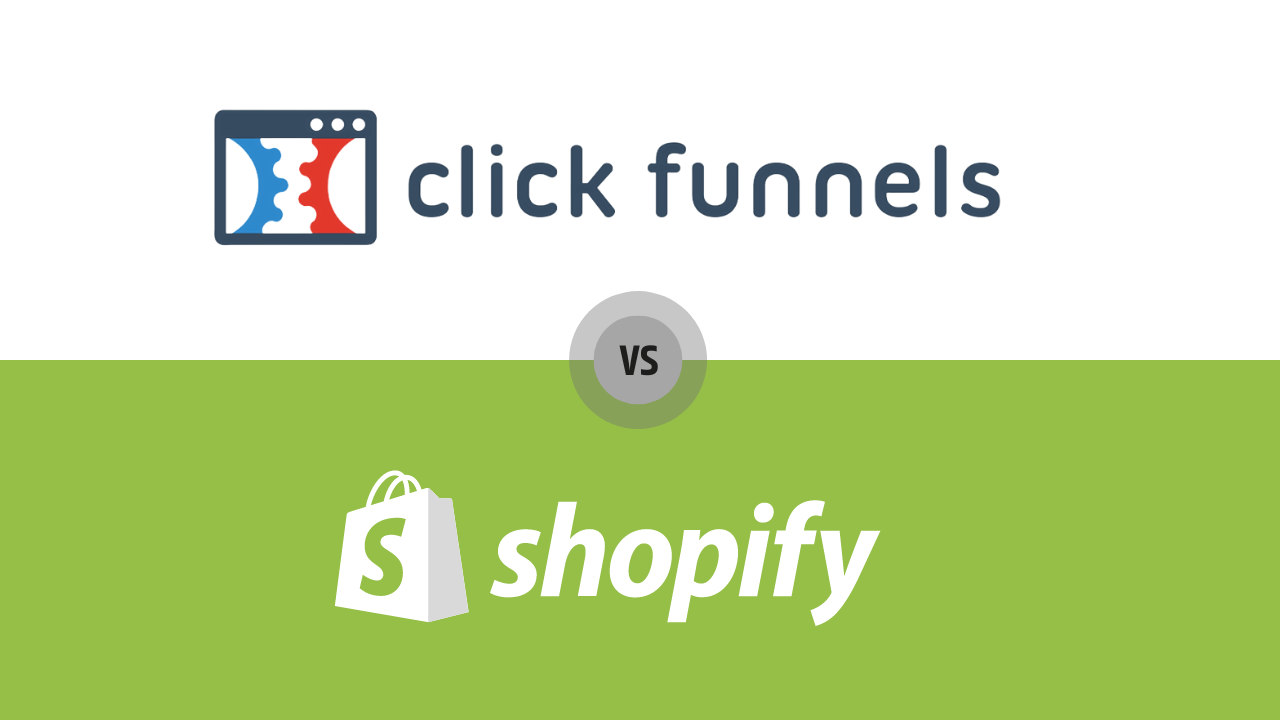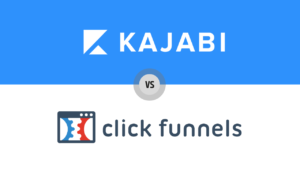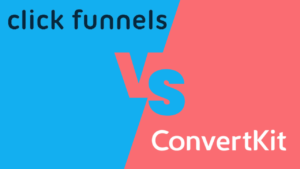Choosing the right platform for your online business is crucial to its success, and the ClickFunnels vs Shopify debate is one that many entrepreneurs face. Both platforms offer unique features aimed at helping businesses thrive online, but understanding their differences is key to making an informed decision. This article dives into a comprehensive comparison of Shopify vs Clickfunnels, exploring various aspects of each platform. Whether you’re focused on optimizing sales funnels or building a robust e-commerce store, this post will guide you through selecting the platform that best suits your business needs
Check Out Clickfunnels vs Convertkit Here:
Check Out Kajabi vs Clickfunnels Here:
Table of Contents
What Is This Function Of Each Platform? ClickFunnels vs Shopify
In the comparison of ClickFunnels vs Shopify, it’s essential to understand how each platform serves different aspects of online business creation and management. This section aims to provide a clear, informative analysis of both platforms’ capabilities in these areas, ensuring readers can make an informed decision based on their specific needs.
ClickFunnels for Sales Funnel Creation
ClickFunnels offers the capability to build websites, though it’s not the platform’s primary function. Rather than traditional website management and design, Clickfunnels excels in the creation and optimization of sales funnels, which are essential for guiding potential customers through the buying process. The platform is designed to help businesses generate leads, sell products, and increase the lifetime value of each customer. With its drag-and-drop builder, users can easily create custom funnels that match their business model, whether it’s for lead generation, product sales, or event registrations. ClickFunnels offers a wide array pre-designed elements such as landing pages, checkout pages, upsell pages, and thank you pages that can be easily customized to fit the brand’s needs.
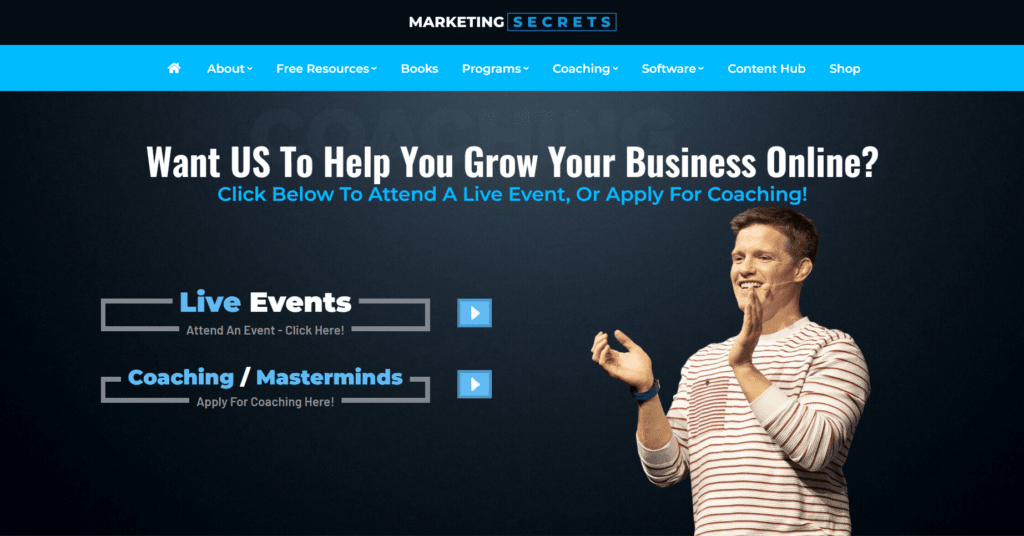
Shopify for Website Creation
While ClickFunnels focuses on sales funnels, Shopify shines in creating comprehensive e-commerce websites. Shopify provides a robust platform for businesses to set up an online store, manage inventory, process payments, and handle shipping. It’s user-friendly interface allows even beginners to create a professional-looking store without needing coding skills. Shopify’s website creation tools include a variety of themes that can be customized to reflect the brand’s aesthetics. The platform also offers extensive e-commerce features, including product listings, collections, and detailed analytics, making it easier for businesses to scale and manage their online presence.
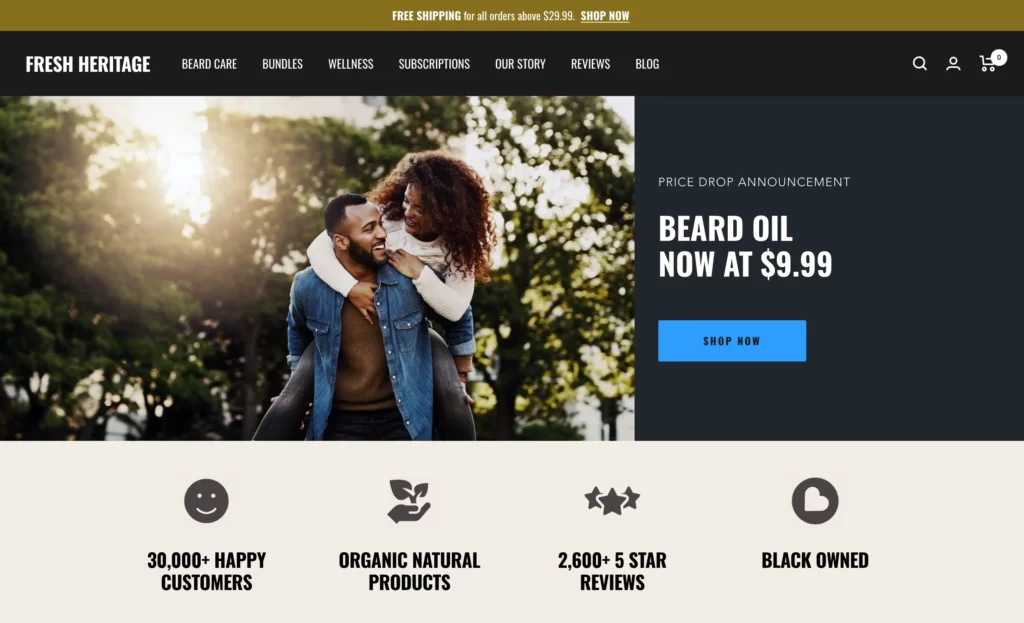
The choice between the two platforms depends largely on the specific needs of the business. ClickFunnels is the go-to for businesses focused on building optimized sales funnels to convert visitors into customers efficiently. On the other hand, Shopify offers a comprehensive solution for those looking to establish a full-fledged e-commerce presence with a focus on store functionality and scalability. Understanding the strengths of each platform can guide businesses in choosing the right tool for their online venture.
Ease Of Use Of ClickFunnels vs Shopify
When comparing ClickFunnels vs Shopify, it’s essential to assess how user-friendly each platform is for beginners and seasoned online business owners alike.
ClickFunnels Ease of Use
ClickFunnels is renowned for its straightforward user interface, designed specifically for building sales funnels. It caters to users who want to create effective sales funnels without getting bogged down in technical details. The platform offers a drag-and-drop editor that simplifies the process of creating custom pages, allowing for easy customization without the need for coding skills. This makes ClickFunnels an attractive option for entrepreneurs and marketers focusing on conversion optimization. The setup process is streamlined, with various pre-built funnel templates that cater to different types of businesses and marketing goals. The platform’s focus on sales funnels means it’s particularly user-friendly for those looking to guide their visitors through a specific journey, from awareness to purchase.

Shopify Ease of Use
Shopify, on the other hand, is a comprehensive e-commerce platform that excels in offering an easy-to-use solution for setting up and managing online stores. It provides users with an intuitive interface and a straightforward setup process, making it accessible for users of all skill levels. Shopify’s extensive theme library allows for significant customization, enabling merchants to design their stores without needing in-depth technical knowledge. The platform’s dashboard is designed for efficiency, offering a centralized location for managing products, orders, payments, and shipping. Shopify also boasts a robust app store, which further enhances its functionality, allowing users to easily add new features to their store without complicated integrations.
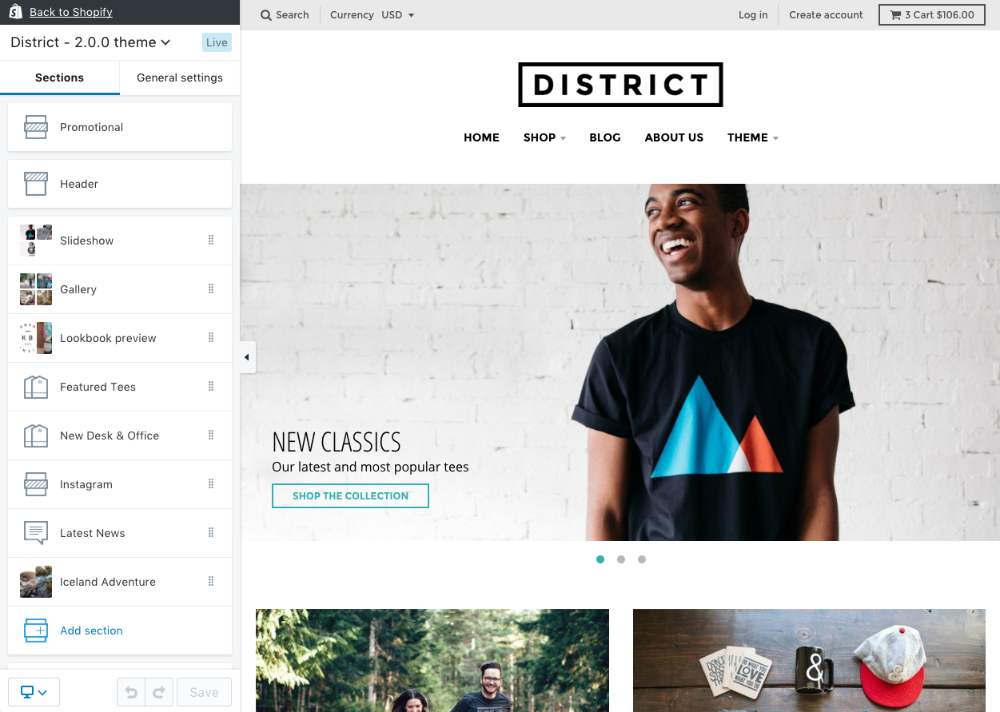
E-Commerce Features Of ClickFunnels vs Shopify
Shopify’s E-Commerce Prowess
Shopify is the stand out winner as a comprehensive e-commerce solution, designed to support businesses at every stage of their online retail journey. It offers a wide array of features essential for e-commerce success:
- Product Management: Shopify allows for detailed product listings, including images, descriptions, and variants. It supports an unlimited number of products, from physical items to digital downloads and services.
- Inventory Management: The platform provides robust tools for tracking stock levels, setting up notifications for low stock, and managing suppliers directly through the dashboard.
- Payment Processing: Shopify supports a wide range of payment gateways, including its own Shopify Payments, which simplifies the setup process and offers competitive transaction rates.
- Shipping and Fulfillment: Integrated shipping tools enable users to manage logistics seamlessly, offering shipping discounts, printing shipping labels, and setting up custom shipping rates.
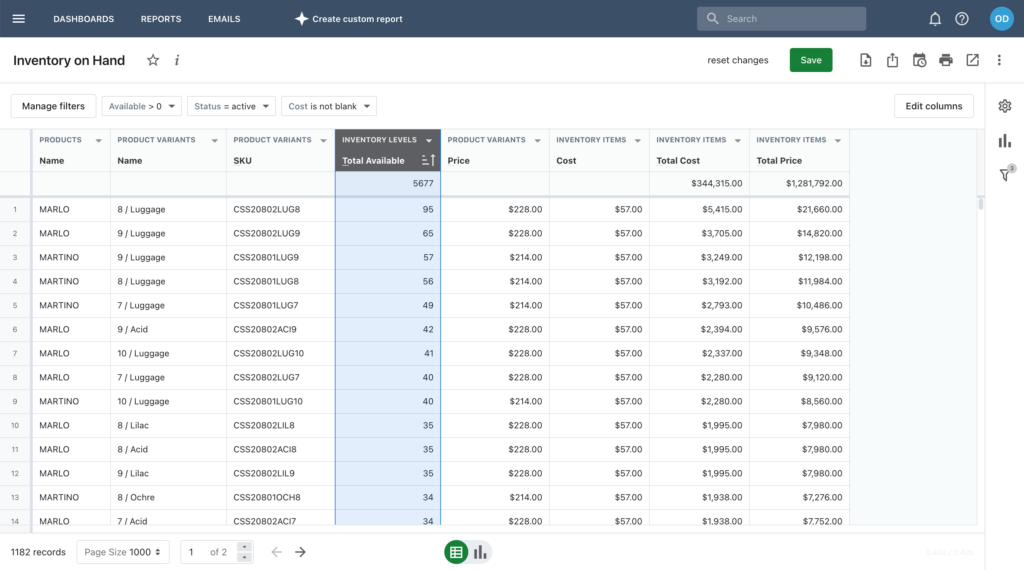
ClickFunnels’ Sales-Focused Features
While ClickFunnels might not offer the breadth of e-commerce features found in Shopify, it specializes in creating high-converting sales funnels that are ideal for selling products online. Its e-commerce features are tailored to maximize the customer’s journey through targeted funnels:
- One-Click Upsells and Downsells: ClickFunnels excels in increasing the average order value through one-click upsells, downsells, and order bumps, encouraging customers to purchase additional products.
- Checkout Customization: The platform provides customizable checkout pages that can be optimized for conversions, including the ability to add testimonials, guarantees, and other trust elements.
- Payment Integration: ClickFunnels integrates with major payment gateways, allowing for seamless transactions within the sales funnel.
- Product Delivery: Though not as comprehensive as Shopify, ClickFunnels facilitates the delivery of digital products and services directly through the funnel.
In the debate of ClickFunnels vs Shopify, Shopify emerges as the more robust platform for managing a full-scale e-commerce business, offering extensive tools for product management, payment processing, shipping, and inventory management. Conversely, ClickFunnels specializes in creating optimized sales funnels that enhance the buying process, making it a powerful tool for businesses focused on maximizing conversions and sales efficiency.
Pricing And Plans Of ClickFunnels vs Shopify
When analyzing ClickFunnels vs Shopify it’s essential for potential users to understand the cost implications and the value offered by each platform. This segment aims to provide a clear, concise comparison of their pricing structures and the value each platform delivers, ensuring readers can make an informed decision based on their budget and business needs.
ClickFunnels Pricing
ClickFunnels offers several pricing tiers designed to accommodate the varying needs of businesses, from startups to large enterprises. At the time of writing the main plans include:
- Basic Plan ($127/mo/yr): This entry-level plan provides access to the core funnel-building tools, with limitations on the number of funnels and pages. It’s suitable for small businesses or individuals just starting with funnel marketing.
- Pro Plan ($157/mo/yr): A more advanced option, offering a higher limit on funnels, pages, and additional features like affiliate management and email marketing automation. This plan is aimed at businesses looking to scale their online presence.
- Funnel Hacker Plan($208/mo/yr): Tailored for high-volume businesses and enterprises, this plan includes unlimited funnels, the highest number of users/domains/contacts, and advanced support and training options to maximize funnel performance.
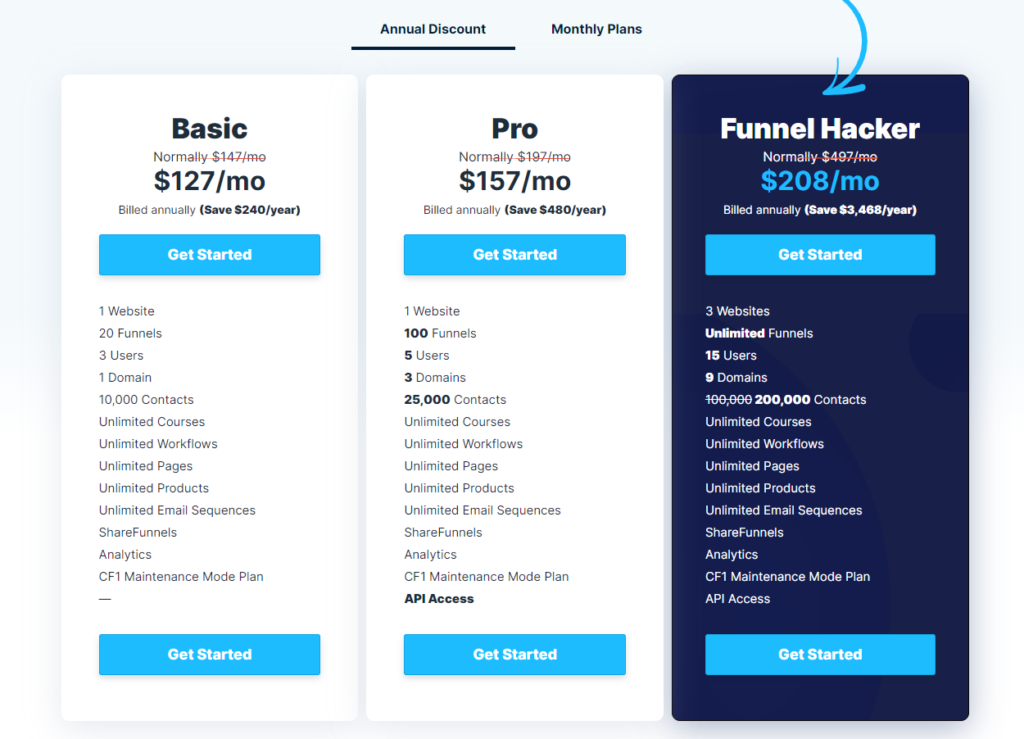
Each ClickFunnels plan is designed to offer value for money by providing the necessary tools and features to help businesses convert visitors into customers efficiently.
Shopify Pricing
Shopify’s pricing structure is also tiered, catering to businesses of all sizes:
- Basic Shopify($29/mo/yr): Ideal for new businesses or online stores with a limited number of products. It includes all the essential features needed to start selling online.
- Shopify($79/mo/yr): This plan offers more advanced features, suitable for growing businesses looking for better reporting and lower transaction fees.
- Advanced Shopify($299/mo/yr): Targeted at scaling businesses, this plan provides advanced reporting, lower transaction fees, and better shipping rates.
- Shopify Plus($2300/mo/3yrs): Shopify’s enterprise solution, offering customized solutions for high-volume merchants and large businesses.
Shopify plans are designed to provide comprehensive e-commerce solutions, ensuring businesses have the tools they need to manage and grow their online stores effectively.
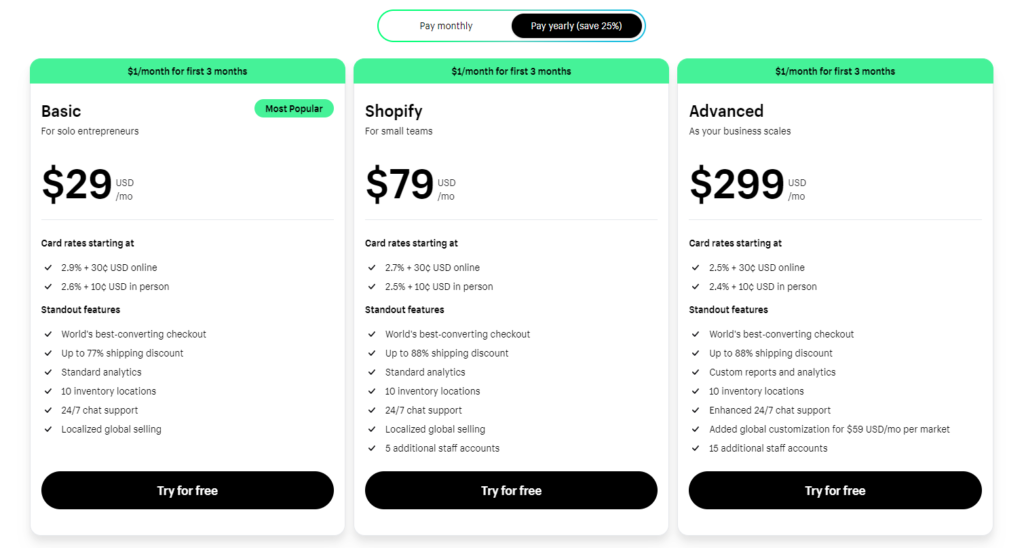
Both platforms offer tiered pricing options designed to accommodate a range of business sizes and needs. ClickFunnels focuses on providing the tools for effective sales funnel creation and optimization, making it a valuable choice for businesses concentrated on maximizing conversions. Shopify, on the other hand, offers a more comprehensive e-commerce solution, making it ideal for businesses seeking a full-featured platform for online store management.
Third-Party Integration For ClickFunnels vs Shopify
While discussing ClickFunnels vs Shopify, it’s important to evaluate how each platform allows for the expansion and customization of its core functionalities through external applications and services.
ClickFunnels Third-Party Integrations
ClickFunnels emphasizes the importance of sales funnels and marketing automation in online business success. It supports a variety of third-party integrations that enhance its native capabilities, including:
- Email Marketing Platforms: Integration with major email marketing tools like Mailchimp, AWeber, and ConvertKit allows users to seamlessly connect their sales funnels with their email campaigns, automating the customer journey from initial contact to conversion.
- Payment Gateways: ClickFunnels integrates with a range of payment solutions, including PayPal, Stripe, and Authorize.net, facilitating easy and secure transactions within funnels.
- Webinar and Event Platforms: Tools like Zoom and GoToWebinar can be integrated, making it straightforward to run webinars as part of a sales funnel strategy.
- Analytics and Tracking: Integrations with Google Analytics, Facebook Pixel, and other tracking tools enable detailed analysis of funnel performance and ROI.
Shopify Third-Party Integrations
Shopify’s robust platform serves as a comprehensive e-commerce solution, supported by an extensive library of apps and integrations in the Shopify App Store. These integrations cover a wide array of functionalities:
- Accounting and Inventory Management: Shopify integrates with software like QuickBooks, Xero, and Inventory Source, helping businesses streamline their operations.
- Marketing and SEO Tools: A broad selection of apps for SEO optimization, social media marketing, and email marketing campaigns are available, including SEMrush, Klaviyo, and Hootsuite.
- Shipping and Fulfillment Services: Shopify offers integrations with major shipping carriers and fulfillment services, such as UPS, FedEx, and ShipStation, to automate shipping processes.
- Customer Support Tools: Integration with customer support platforms like Zendesk and LiveChat enhances the customer service experience.
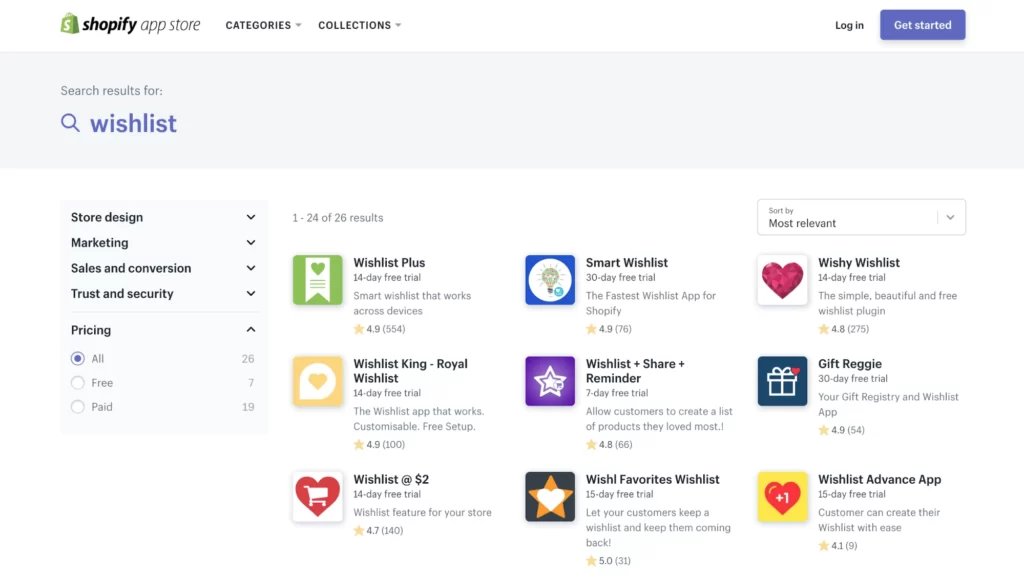
Conclusion
Both platforms offer extensive options to enhance and customize their core offerings. ClickFunnels focuses on integrations that boost marketing automation and sales funnel efficiency, making it a powerful tool for businesses prioritizing lead conversion and sales optimization. Conversely, Shopify provides a wide array of integrations that cover every aspect of running an e-commerce business, from operations and marketing to shipping and customer service.
Marketing and SEO Tools With ClickFunnels vs Shopify
In the ClickFunnels vs Shopify debate, focusing on Marketing and SEO Tools is essential for businesses aiming to enhance their online presence and drive more sales. This segment will provide a concise, informative comparison of the marketing and search engine optimization (SEO) capabilities of ClickFunnels and Shopify, helping readers understand which platform better suits their needs for promoting their online business.
ClickFunnels Marketing and SEO Tools
ClickFunnels primarily focuses on optimizing the sales funnel process to convert visitors into customers efficiently. While it may not offer an extensive range of SEO tools directly, its strength lies in its integrated marketing features:
- Email Marketing Automation: ClickFunnels integrates seamlessly with popular email marketing platforms, enabling businesses to automate follow-up sequences and nurture leads through customized email campaigns.
- Affiliate Program Management: With the Backpack feature in the higher-tier plans, ClickFunnels users can create and manage their own affiliate programs, encouraging others to promote their products in exchange for commissions.
- Social Media Integration: ClickFunnels allows for easy integration with social media platforms, facilitating social media advertising campaigns and content marketing strategies.
- Conversion Optimization Tools: The platform includes a variety of landing page templates and testing tools to help businesses optimize their funnels for higher conversion rates.
Shopify Marketing and SEO Tools
Shopify excels in providing a comprehensive e-commerce platform that includes robust SEO features and marketing tools to help businesses rank higher in search engine results and attract more customers:
- SEO Features: Shopify offers built-in SEO capabilities, such as customizable headlines, titles, and meta tags, to improve search engine visibility. It also automatically generates sitemaps, making it easier for search engines to crawl and index the store’s pages.
- Email Marketing: Shopify Email allows merchants to create, send, and track email marketing campaigns directly from their Shopify admin, helping to engage customers and drive sales.
- Social Media Integration and Sales Channels: Shopify integrates with major social media platforms, allowing businesses to sell directly on Facebook, Instagram, Pinterest, and more.
- Marketing Analytics and Reports: The platform provides detailed analytics and reports that help businesses track their marketing efforts’ effectiveness and ROI.
While both platforms have an extensive Marketing and SEO Tool list the best options are still going to be third-part tools such as SEMRUSH
Sales and Conversion Features Of ClickFunnels vs Shopify
If you are comparing Shopify vs Clickfunnels, understanding how each platform equips businesses to maximize sales and improve conversion rates is crucial. This section aims to deliver a concise and informative comparison of the features that ClickFunnels and Shopify offer to enhance sales performance and conversion optimization, helping readers identify which platform is best suited to their sales strategy needs.
ClickFunnels Sales and Conversion Features
ClickFunnels is specifically designed to optimize the sales funnel process, making it a powerful tool for businesses focused on converting visitors into customers. Key sales and conversion features include:
- One-Click Upsells: ClickFunnels simplifies the process of adding upsell opportunities to the sales funnel, encouraging customers to make additional purchases with a single click after their initial purchase.
- Order Bumps: This feature allows sellers to offer complementary products or services on the checkout page, increasing the average order value.
- A/B Testing: ClickFunnels provides robust A/B testing capabilities, enabling businesses to test different versions of their landing pages and funnels to identify the most effective elements for conversion optimization.
- Lead Capture and Follow-Up Funnels: The platform excels in capturing leads and automating follow-up sequences, ensuring potential customers are nurtured through the sales process.
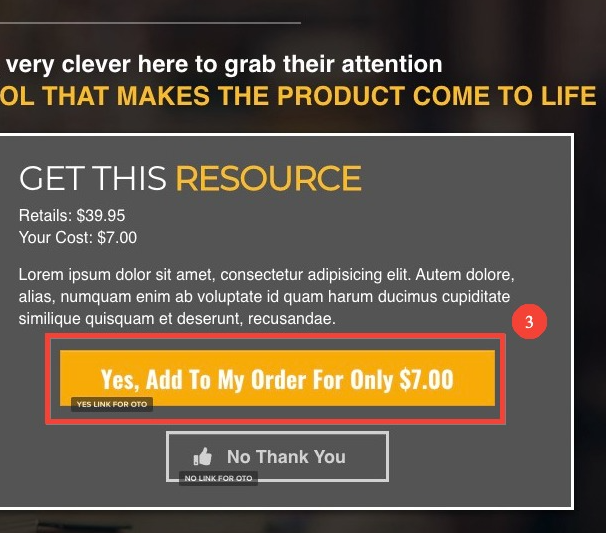
Shopify Sales and Conversion Features
Shopify, as a comprehensive e-commerce platform, offers a wide range of features designed to enhance the online shopping experience and improve conversion rates:
- Abandoned Cart Recovery: Shopify helps businesses recover lost sales by automatically sending emails to customers who have left items in their cart without completing a purchase.
- Product Recommendations: The platform can display related products to shoppers, encouraging additional purchases and increasing order values.
- Customer Reviews: Shopify integrates with apps that allow customer reviews and ratings, building trust and credibility for the store.
- Checkout Customization: While Shopify offers less flexibility than ClickFunnels in checkout customization, it provides a streamlined, secure checkout process designed for high conversion rates.
It’s evident that both platforms offer distinct advantages tailored to different business models. ClickFunnels is focused on maximizing conversions through optimized sales funnels, making it ideal for businesses that prioritize direct marketing and sales funnel efficiency. Shopify, on the other hand, provides a broad set of e-commerce features that enhance the overall shopping experience, making it suitable for businesses seeking to build and scale an online store.
Templates and Design Flexibility For ClickFunnels vs Shopify
In discussing ClickFunnels vs Shopify comparison, it’s crucial to examine how each platform accommodates businesses in creating visually appealing and functionally effective online presences. This section aims to provide a clear, concise evaluation of the template offerings and design customization capabilities of both ClickFunnels and Shopify, guiding readers to understand which platform might better serve their design needs.
ClickFunnels Templates and Design Flexibility
ClickFunnels offers a wide selection of pre-designed funnel templates that are optimized for various business needs, including lead generation, sales, and event registrations. These templates are designed with conversion in mind, ensuring that businesses can effectively guide visitors through the sales process. Key features include:
- Customization: While ClickFunnels templates provide a strong starting point, the platform also offers significant customization options through its drag-and-drop editor. Users can modify layouts, add new elements, and adjust colors and fonts to align with their branding.
- Mobile Responsiveness: All ClickFunnels templates are designed to be mobile-responsive, ensuring that funnels look great and function well on any device.
Shopify Templates and Design Flexibility
Shopify shines in its offering of e-commerce website templates, catering to a wide range of industries and styles. The platform provides both free and premium themes, all of which are customizable to meet the specific needs of an online store. Shopify’s design flexibility includes:
- Theme Customization: Users can easily modify themes using Shopify’s theme editor, which allows for changes in layouts, color schemes, and fonts without needing to write code. For more advanced customization, users can access the theme’s HTML, CSS, and JavaScript.
- Extensive Theme Library: Shopify’s Theme Store hosts a diverse collection of themes, ensuring businesses can find a design that closely matches their vision.
- App Integrations for Enhanced Functionality: Beyond aesthetic customization, Shopify’s extensive app store allows users to add features that can further tailor the shopping experience to their brand’s needs.
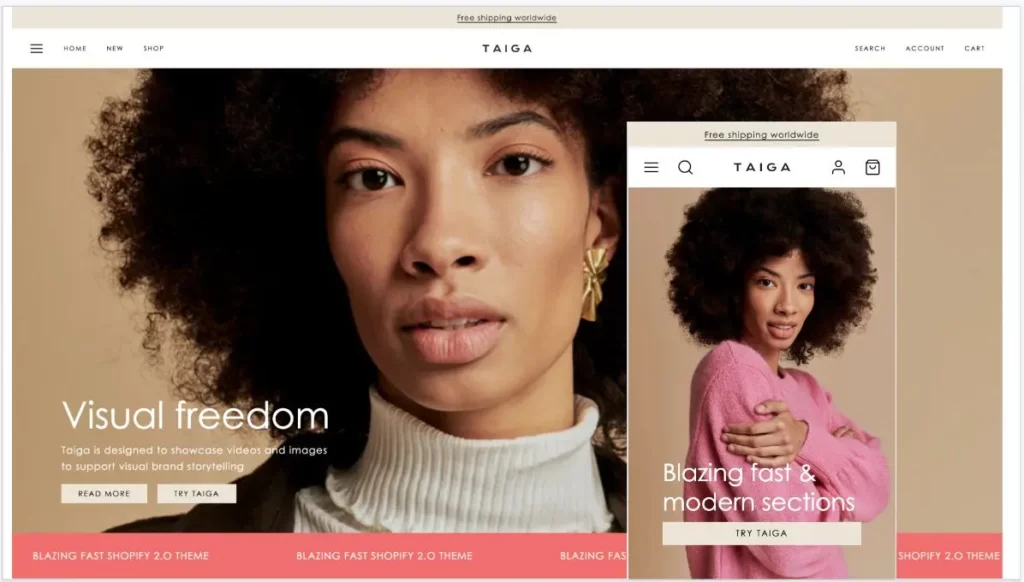
Both platforms offer robust solutions tailored to their users’ specific goals. ClickFunnels provides a range of pre-built funnel templates with extensive customization options ideal for businesses focused on optimizing their sales process. On the other hand, Shopify offers a broader variety of e-commerce themes with deep customization capabilities, making it a strong choice for businesses prioritizing a unique and branded online store experience.
Check Out Clickfunnels vs ConvertKit Here:
Check Out Kajabi vs Clickfunnels Here:
Time To Decide Between ClickFunnels vs Shopify
ClickFunnels excels in creating and optimizing sales funnels, making it the ideal choice for businesses focused on lead conversion and maximizing sales through targeted marketing strategies. Its strength lies in funnel management, one-click upsells, and detailed analytics related to funnel performance. On the other hand, Shopify stands out as a comprehensive e-commerce solution, offering extensive features for creating and managing an online store. From inventory management to payment processing and robust SEO tools, Shopify is designed to support businesses in building a broad online retail presence. Its wide array of templates and design flexibility, coupled with in-depth analytics, makes it suitable for businesses looking to scale and expand their e-commerce operations.
Choosing between ClickFunnels vs Shopify ultimately depends on your business goals. If your primary focus is on building highly optimized sales funnels to drive conversions, ClickFunnels is the way to go. However, if you’re aiming to establish and grow a full-fledged online store with a wide range of products and desire extensive e-commerce capabilities, Shopify will likely serve your needs better.


